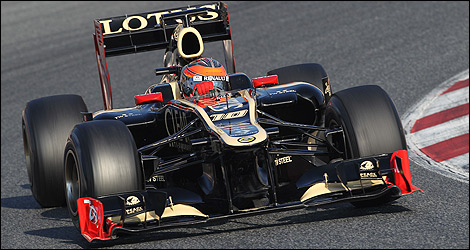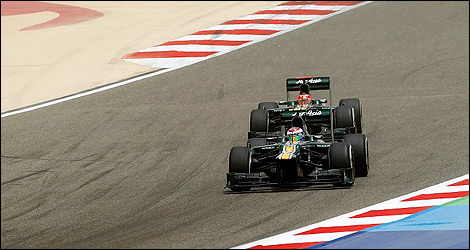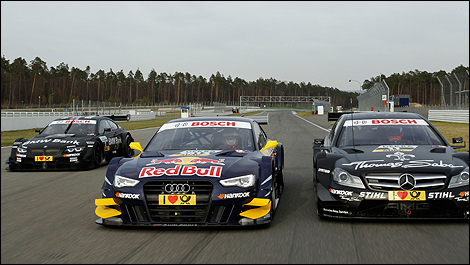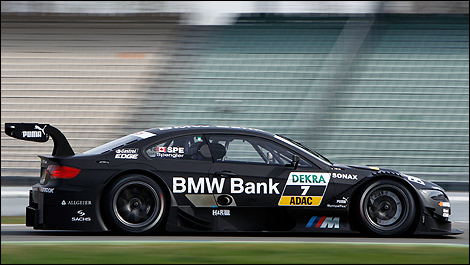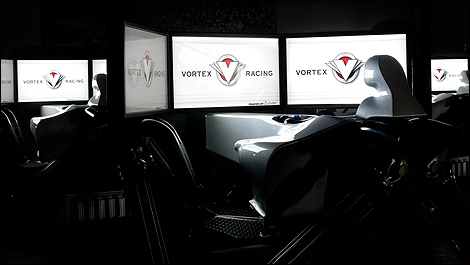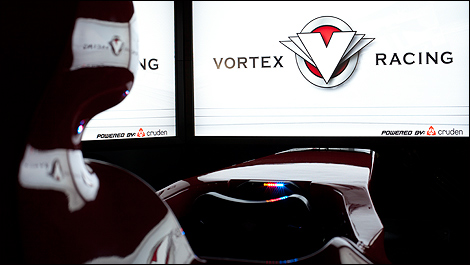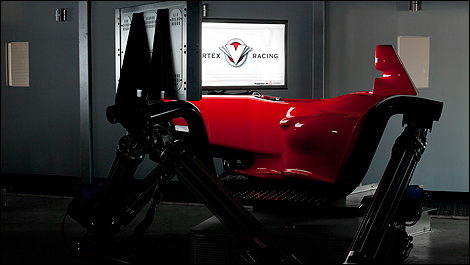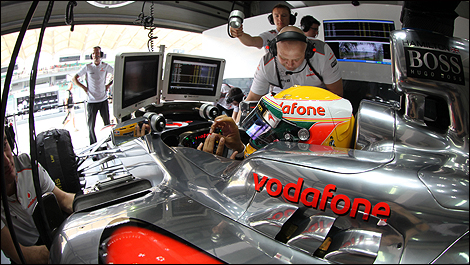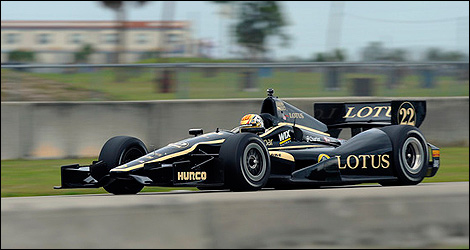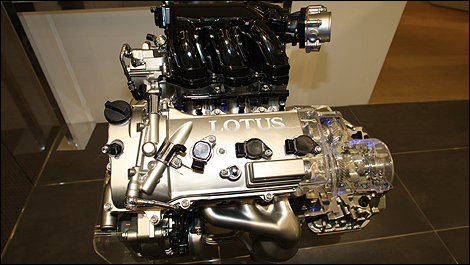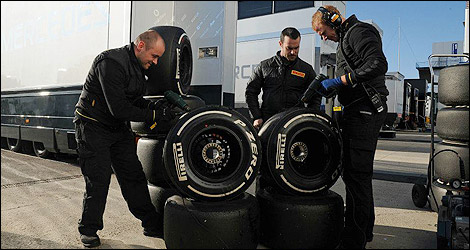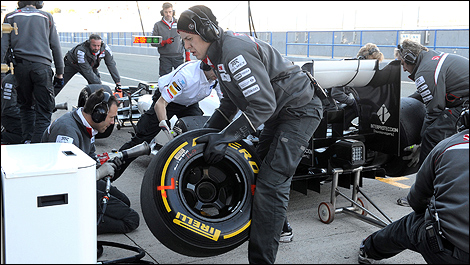SAN FRANCISCO, California - This is a completely new vehicle that resembles the old one about as much as I resemble Brad Pitt. Like Brad Pitt, this latest global vehicle from Ford is sure to generate plenty of accolades and awards.
The Great Escape
With more than two million Ford Escapes sold over the years, it's fair to say that the blue oval's compact SUV contributed to its escape from bankruptcy. While offering plenty of value in the segment, the 2012 Ford Escape has aged, losing its edge to competitors such as Honda's new CR-V and
Kia's Sportage.
As part of their global-platform strategy, Ford understands the importance in "getting it right," when it comes to new vehicles - and that's largely what they've done with the new Escape. This vehicle is a vast departure from the previous generation, which was a boxy, less sophisticated unit that was more truck-like than car-like.
With 30% of the automotive industry made up of small SUVs/crossovers and midsize cars, the significance of the new Escape to Ford's growth is indisputable, or "a big deal," to quote Ford itself. So the question is: Did they get the "big deal" right?
Let's find out.
 |
| The new Escape is much more athletic than before; it's also far quieter and smoother riding regardless of which trim level applies. (Photo: Rob Rothwell/Auto123.com) |
Improved in many ways
The shape of the new Escape is far more aerodynamic than the outgoing generation, and that's just one factor contributing to a 4.7L/100km improvement in fuel economy between the best of the former and the best of the future, as claimed by Ford.
Other fuel-saving strategies include the use of Ford's EcoBoost engine technology, electric power steering, low rolling-resistance tires, and grille shutters that close to reduce wind friction. Along with greater fuel economy come improved traction and handling dynamics thanks to torque vectoring all-wheel drive and Curve Control.
Torque vectoring allows the Escape to direct power to the wheels with grip rather than wasting it on wheels defeated by slippery conditions. This system operates seamlessly and with lightning speed. It's capable of delivering 100% of the engine's output to either the front or rear wheels, or any combination therein.
Curve Control is a system that manages brake force when the vehicle is engaged in cornering. Ever hit the brakes mid-corner when travelling too fast for the radius? If so, you'll know how it unsettles the vehicle's stability. Not so with Curve Control; in order to maintain control, it apportions brake pressure to each wheel based on the cornering forces at play.
Some other noteworthy improvements in the new Escape include the segment's largest panoramic opening glass roof, best-in-class noise control, and soft-touch door panels and instrument panel. These elements combine to create an upscale driving experience in a vehicle that now has a starting price tag $200 below the previous gen.
Other value gains apply, such as more content for less money. And that's a proposition buyers will find appealing. Despite all of the improvements listed on paper, it comes down to the 'drive,' and I was anxious to experience the pair of EcoBoost 4-bangers that Ford now offers in the Escape.
 |
| Along with greater fuel economy come improved traction and handling dynamics thanks to torque vectoring all-wheel drive and Curve Control. (Photo: Rob Rothwell/Auto123.com) |
EcoBoost supplants former V6
There's no longer a V6 engine available in the Escape, but don't write off this vehicle's towing ability, which remains at a class-leading 3,500 lbs when the optional 2.0L EcoBoost I4 is selected. This small but potent mill happily dispatches 240 hp and 270 lb-ft of torque, and is the high-performance choice.
Should fuel economy trump towing ability when it comes to hierarchal needs, the 178-hp, 1.6L EcoBoost I4 is the obvious choice. This engine delivers the best fuel economy, which is better than the 9.5L/100km and 6.7L/100km city and highway rating of the 2.0L EcoBoost in a front-wheel-drive application.
Unfortunately, the figures for the 1.6L EcoBoost have not yet been released.
Both engines are fused to a 6-speed automatic transmission.
Escaping the city
After an in-depth briefing on the new Escape, we climbed aboard our assigned vehicles and headed for the hills north of San Francisco. The first vehicle under the administration of my driving partner and I was a fully-decked Titanium AWD tester.
This vehicle was motivated by the optional 2.0L EcoBoost mill, and frankly, this engine's operational refinement and its authoritative output surprised us both. It was exceptionally well muted for a four-banger, sounding far more upscale than either of us anticipated.
It really is the engine of choice for those with the highest expectations around performance and refinement. Realizing that our leather-laden champ was tagged at $37,499, we chose to sample something less wallet-challenging, and jumped into an SE FWD version for further analysis.
 |
| This vehicle was motivated by the optional 2.0L EcoBoost mill, and frankly, this engine's operational refinement and its authoritative output surprised us both. (Photo: Ford) |
Gone was the leather and chrome trim, but still evident was the solidity of the new Escape and its outstanding driving dynamics, most significant of which was the vehicle's cornering tenacity. I pushed the compact SUV with more vigor than one would normally dare in this sort of vehicle, and came away impressed.
The new Escape is much more athletic than before; it's also far quieter and smoother riding regardless of which trim level applies. The nicely-equipped, including navigation, SE edition that we finished our road trip in was tagged at $26,899. While it exhibited many of the Titanium's attributes, it felt somewhat anemic in contrast to the punch of the 240 horses we saddled earlier.
Final comments
There's no argument that the compact SUV/crossover segment is exceptionally important to manufacturers. It's where many buyers are trending in search of expanded versatility combined with improved economy.
For such buyers, Ford's new Escape deserves a close inspection. It's a profoundly improved vehicle that offers a broad range of configurations and pricing.
Oh, so did Ford get the "big deal" right? In my view, it's a resounding "yes."
Key Competitors
 The latest auto news, reviews, prices, product and vehicle releases.
The latest auto news, reviews, prices, product and vehicle releases. 